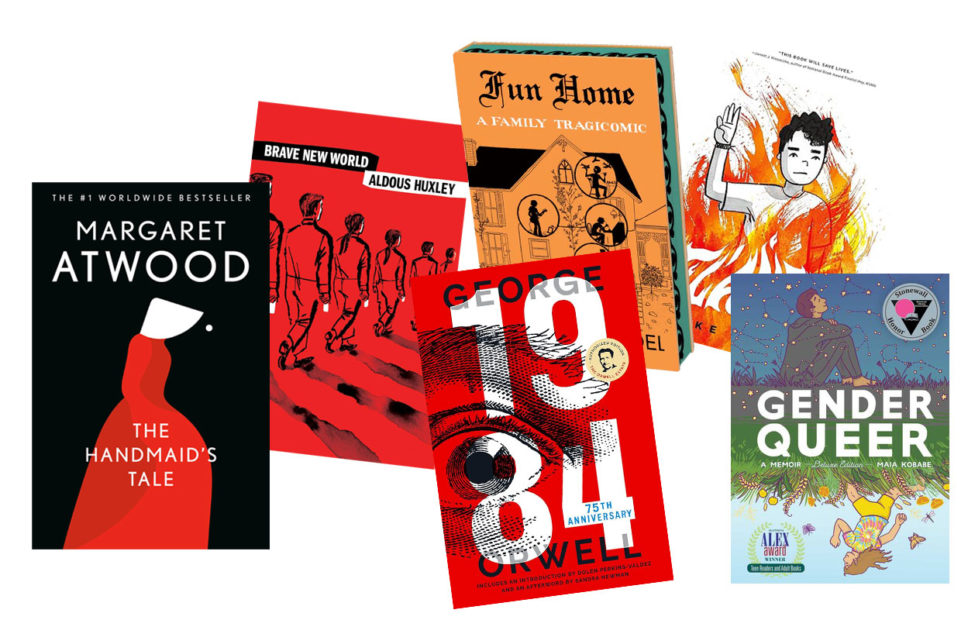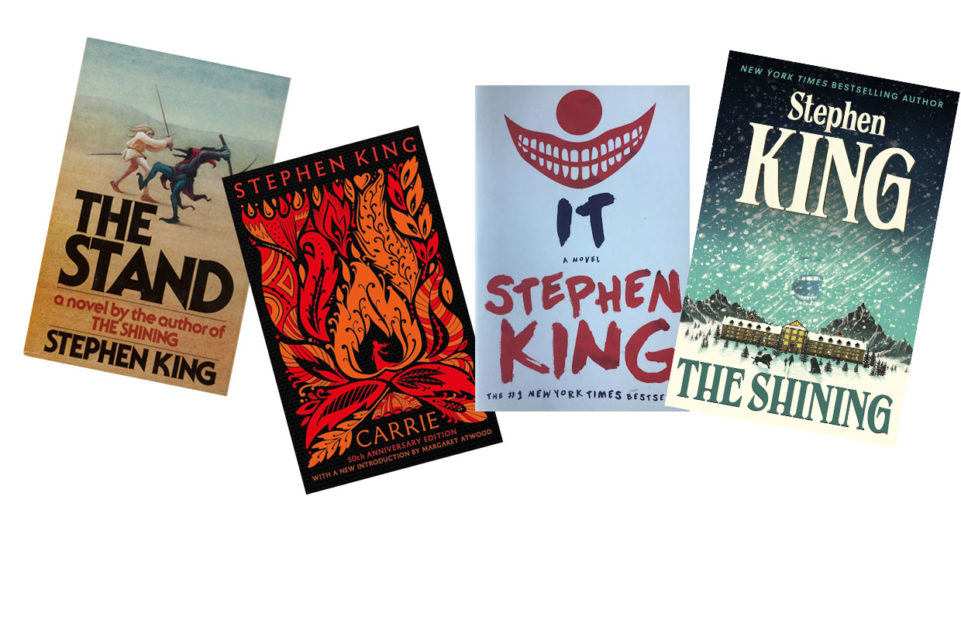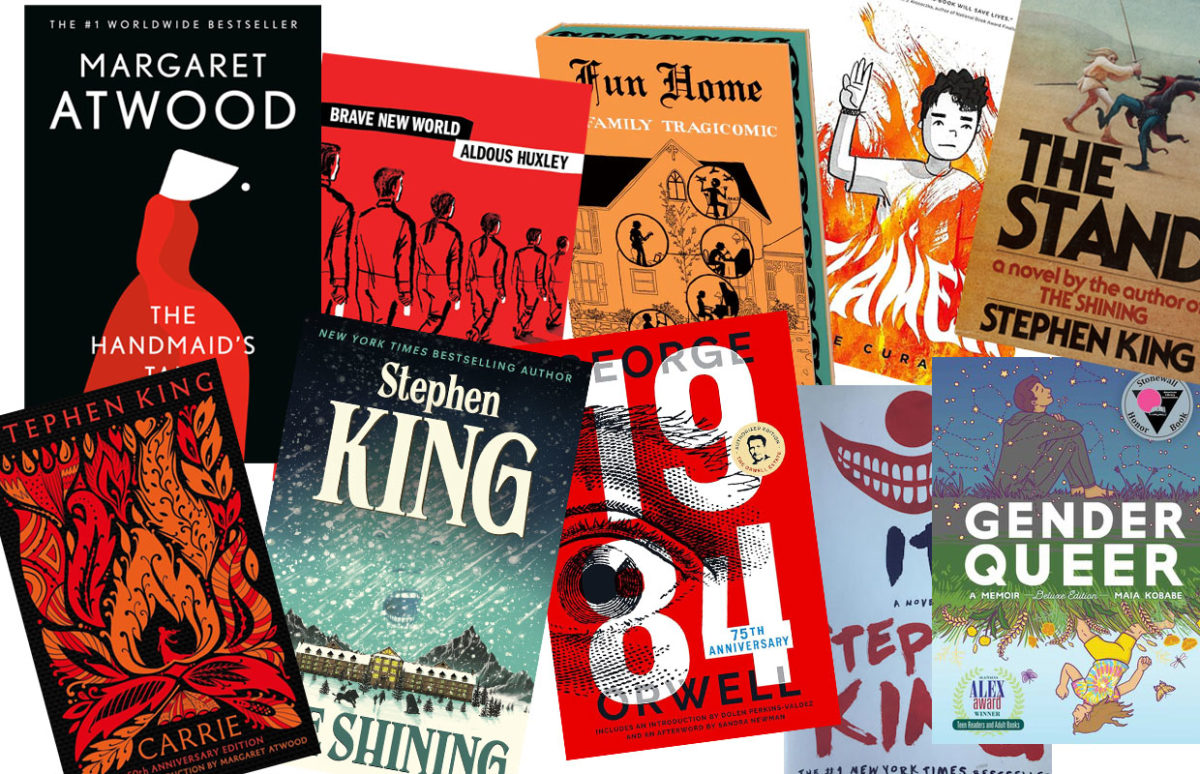The New Age of Book Banning
Over the past two years, North America has witnessed a resurgence of book censorship in public and school libraries. From Alberta in Canada to Florida and Utah in the United States, hundreds of books have been removed under the banner of “protecting minors” from content deemed “explicit” or “inappropriate.” Among the authors most directly affected, two major voices have become symbols of resistance: Margaret Atwood and Stephen King.
A North American pattern of censorship
In August 2025, Alberta’s Ministry of Education ordered public schools to remove any book containing “sexually explicit material” by October 1. The directive, meant to protect children, ended up targeting a range of classic and contemporary works — among them The Handmaid’s Tale by Margaret Atwood, George Orwell’s 1984, Aldous Huxley’s Brave New World, Toni Morrison’s The Bluest Eye, and The Color Purple by Alice Walker. Modern works such as Alison Bechdel’s Fun Home, Maia Kobabe’s Gender Queer, and Mike Curato’s Flamer were also targeted for their depictions of sexuality or identity.

Margaret Atwood responded with a satirical very short story titled A Very Proper School, mocking a society obsessed with “cleaning” its libraries in the name of morality. It helped whip up a public backlash, following which the provincial government announced a temporary suspension of the ban in order to clarify what constitutes “explicit” content. Finally, according to a new ministerial order published on Monday, October 6, Alberta’s revised regulations on school books will prohibit works containing explicit visual depictions of sexual acts, but not those with written descriptions of such acts.
Meantime, in the U.S.A.
South of the border, book bans have reached unprecedented levels. According to PEN America’s 2024–2025 report, more than 6,800 cases of removals or restrictions were documented in U.S. public schools.
In Utah, a 2024 state law banned 13 titles statewide, including Atwood’s The Handmaid’s Tale and Oryx and Crake, labelling them “pornographic or indecent.” The mechanism is simple but sweeping: once a book is banned in one school district, it can be automatically prohibited across the entire state. Critics argue that such laws turn local moral disputes into large-scale censorship.
In Florida, the effects are even more visible. Under House Bill 1069, any text describing “sexual conduct” can be removed from classrooms — even when the depiction serves a literary or educational purpose.

Stephen King has become the most banned author in the United States, with 87 of his works affected nationwide and 23 titles removed from Florida school libraries alone. Among the most frequently targeted are Carrie, The Stand, It, Different Seasons, and The Shining — stories often cited for their depictions of adolescence, violence, and psychological trauma. His reaction was direct yet measured: “Kids are smart. Let them read. Trust them to know the difference between fiction and life.”
Authors who refuse to stay silent
Both Atwood and King have become reluctant figureheads in the debate over literary censorship. Their responses differ in tone but converge on a single conviction: the freedom to read is non-negotiable.
Speaking at the British Book Awards, where she received the Freedom to Publish prize, she remarked: “I can’t remember a time when words themselves seemed so much at risk.” She warned that societies lose their moral imagination when they begin to police language and art in the name of purity or comfort.
This is a short video she made to accept the award.
King, for his part, often uses humour to expose the absurdity of bans. Speaking about the Florida restrictions, he told readers to “go to your local library — the books are still there, waiting for you.” His message is simple: if official channels restrict access, the public must keep the literary conversation alive elsewhere. For him, the issue is not merely moral but civic: “Self-righteous book banners don’t always get to have their way. This is still America.” His stance resonates with many educators who see the bans as an erosion of democratic literacy and cultural understanding.
What counts as ‘explicit’?
The controversy rests on one elusive term: sexually explicit. Official definitions usually refer to “clear and detailed depictions of sexual acts,” yet enforcement varies widely. In practice, the same label has been applied to explicit scenes in young-adult fiction and to dystopian or historical novels exploring gender and oppression.
Opponents of these bans argue that such ambiguity encourages self-censorship among teachers and librarians, who may remove books preemptively rather than risk accusations of indecency. What begins as a moral precaution often turns into an administrative reflex — a quiet erasure of complex stories.
Between morality and imagination
Supporters of the bans insist that the goal is to shield minors from harmful material. But critics note that the removed titles often address precisely the issues young readers need to understand: identity, sexuality, violence, or social inequality. The Handmaid’s Tale, for instance, uses fiction to warn against the loss of bodily autonomy and political freedom; Carrie explores female adolescence, shame, and the consequences of repression; It dissects the psychology of fear and the scars of childhood trauma.
This tension between moral protection and intellectual liberty is at the heart of today’s censorship wave. Literature, by nature, invites discomfort; it asks readers to face what society prefers to ignore. When that right to discomfort is taken away, the space for empathy and debate shrinks.
Cultural consequences and resistance
The social backlash to these policies has been swift. Teachers, librarians, and parents have launched petitions, public readings, and campaigns defending the right to read. Back in 2022, Atwood and her publisher Penguin Random House were already so concerned that they released a striking symbol of defiance — an “unburnable edition” of The Handmaid’s Tale, printed on fireproof paper and sold at auction to support PEN America’s work on freedom of expression.
Such gestures remind readers that censorship is not a relic of authoritarian regimes but a recurring temptation even within democracies. The impulse to sanitize art often stems less from protection than from fear — fear of dissent, of ambiguity, of seeing ourselves reflected in uncomfortable ways.
The deeper stakes
Beyond the immediate controversies, the debate raises fundamental questions about the role of literature in a democratic society. Books are not merely objects of consumption; they are laboratories of thought. By restricting what young people can read, societies risk stifling curiosity, empathy, and the ability to imagine alternatives to the present.
For Atwood, the danger is existential: “Without freedom of expression, every other freedom begins to crumble.” King echoes the same belief in simpler terms: “Books are the engines of empathy.”
The new age of book banning thus reveals both a cultural fracture and a civic challenge. In a time of polarization, defending the freedom to read is not only about saving books from shelves — it is about preserving the collective capacity to think, question, and dream.
Sources: The Guardian, Euronews, The Independent, The Albertan, CBS News, PEN America, NBC Washington, TIME, Newsweek, Penguin Random House
Copyright(s) :
all images DR
Tag(s) : "1984" "Alberta" "book bans" "Brave New World" "Canada" "Carrie" "censorship" "democracy" "education" "Florida" "freedom of expression" "IT" "libraries" "literature" "Margaret Atwood" "North America" "Oryx and Crake" "Stephen King" "The Bluest Eye" "The Handmaid's Tale" "The Shining" "The Stand" "U.S.A."





